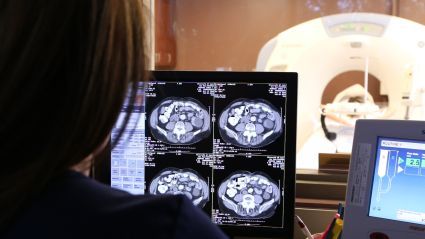FRIDAY, Dec. 9, 2022 (HealthDay News) — Mastectomy has long been the standard of care for certain breast cancer patients, but it still may be more extensive than many women need, a new study suggests.
Researchers found that many women who have two or even three breast tumors may be able to have breast-conserving lumpectomies instead of having the entire breast removed.
That’s because newer, more sensitive imaging techniques have allowed doctors to find tumors so tiny they would not have been seen in the past, the Associated Press reported.
The study was presented Friday at the San Antonio Breast Cancer Symposium in Texas. Research presented at meetings is considered preliminary until published in a peer-reviewed journal.
Researchers found that in 200 women who had these types of cases and had lumpectomies followed by radiation, the cancer returned in just 3% of women in five years. That is similar to cancer recurrence rates in previous lumpectomy studies with only one tumor, the AP reported.
Patients in the study were ages 40 to 87. Their tumors were less than 5 centimeters in size and were separated by about 2 to 3 centimeters of normal breast tissue.
Some doctors were already offering this alternative, even without available surgery guidelines, said lead researcher Dr. Judy Boughey, of Mayo Clinic in Rochester, Minn.
“This will make them more comfortable with that approach,” Boughey told the AP. “And I think it will also make patients ask their surgeon, ‘OK, I have two sites of disease. Do I have to have a mastectomy? Or can you give me breast conservation?'”
Women who had an MRI before surgery had the best results, the AP reported.
Patients were not randomly assigned to lumpectomy or mastectomy, because finding women willing to do that would be nearly impossible and impractical, Boughey said.
Boughey said the study is part of a larger research movement toward “right-sizing” cancer care, the AP reported. Lumpectomy offers both quicker recovery and improved cosmetic results.
“Do we have to throw the kitchen sink at everyone?” Boughey asked. “Which patients need every single option that we have available and which will do just as well without having the kitchen sink thrown at them? Every single treatment has some kind of side effects.”
The research was supported by the U.S. National Institutes of Health.
“This study caught my attention very quickly,” Dr. John Kiluk, a surgeon at Moffitt Cancer Center in Tampa, Fla., told the AP. “It is definitely a step forward for our field.”
More information
The U.S. Centers for Disease Control and Prevention has more on breast cancer treatments.
SOURCE: Associated Press
Copyright © 2026 HealthDay. All rights reserved.

